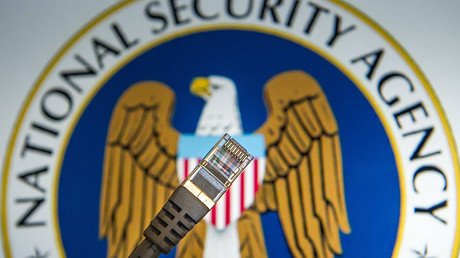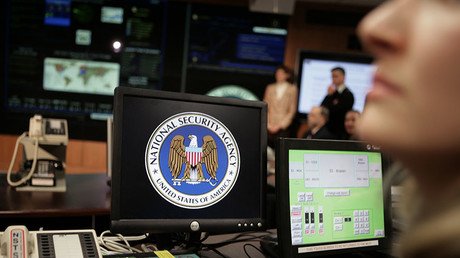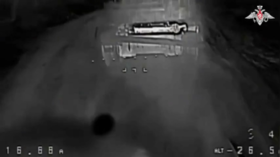NSA collected over 151mn phone records in 2016 despite surveillance law changes

The NSA collected over 151 million phone records from Americans last year, while having warrants for only 42 terrorist suspects, an annual report shows. In 2015, the agency’s snooping powers were cut following Edward Snowden’s revelations.
The new transparency report revealing the agency’s haul was released Tuesday by the Office of the Director of National Intelligence.
The records include communicational “metadata,” showing who contacted whom, but not what they said. The amount of collected data is still lower compared to previous years, when the National Security Agency (NSA) collected “billions of records per day,” according to a 2014 report.
The 151 million records, however, do not represent the actual number of phone calls or people who had their data collected, the report explained, because this volume includes multiple calls made to or from the same phone numbers. Apart from that, a single phone call logged by two phone companies counted as two records.
The number, however, is still significant, since the NSA only obtained warrants through the Foreign Intelligence Surveillance Court for only 42 terrorist suspects in 2016, along with a number of suspects left over from 2015, according to the new report. The Foreign Intelligence Surveillance Court, the FISC or FISA court, oversees requests for surveillance warrants from law enforcement agencies involving suspects in the US.
The NSA can provide the collected data, which involves the “US persons” (USP) to other security and intelligence agencies. In 2016, according to the report, the number of “unmasked” USP identities was “much lower,” compared to the previous year.
The names of 1,934 USPs were “unmasked” in intelligence reports last year in response to specific requests, compared with 2,232 in 2015. The identities of 1,200 USPs were originally revealed in the requested reports. The transparency report, however, did not identify which agencies requested the names or on what grounds.
The agency provides the true identity of the masked person only if an official requesting it has a legitimate “need to know,” according to the transparency report.
“NSA is allowed to unmask the identity for the specific requesting recipient only where specific additional controls are in place to preclude its further dissemination and additional approval has been provided by a designated NSA official,” the report reads.
The “unmasking” mechanism might be the key to determining the source of media leaks damaging to the Trump administration, as some media reports indicated that then-President Barack Obama’s aides requested the disclosure of the names of Trump’s election team members.
The agency disclosed even more information than required by law, the report said, stating the intelligence community was “committed to sharing as much information as possible with the public without jeopardizing mission capabilities.”
This quest for “transparency” largely came as a result of Edward Snowden’s revelations, who disclosed the NSA’s secret operation to gather information on American citizens and residents. The bulk collections previously authorized under Section 215 of the USA Patriot Act were banned in 2015 under the bipartisan USA Freedom Act.
“This year’s report continues our trajectory toward greater transparency, providing additional statistics beyond what is required by law,” Office of the Director of National Intelligence spokesman Timothy Barrett said, according to Reuters.















